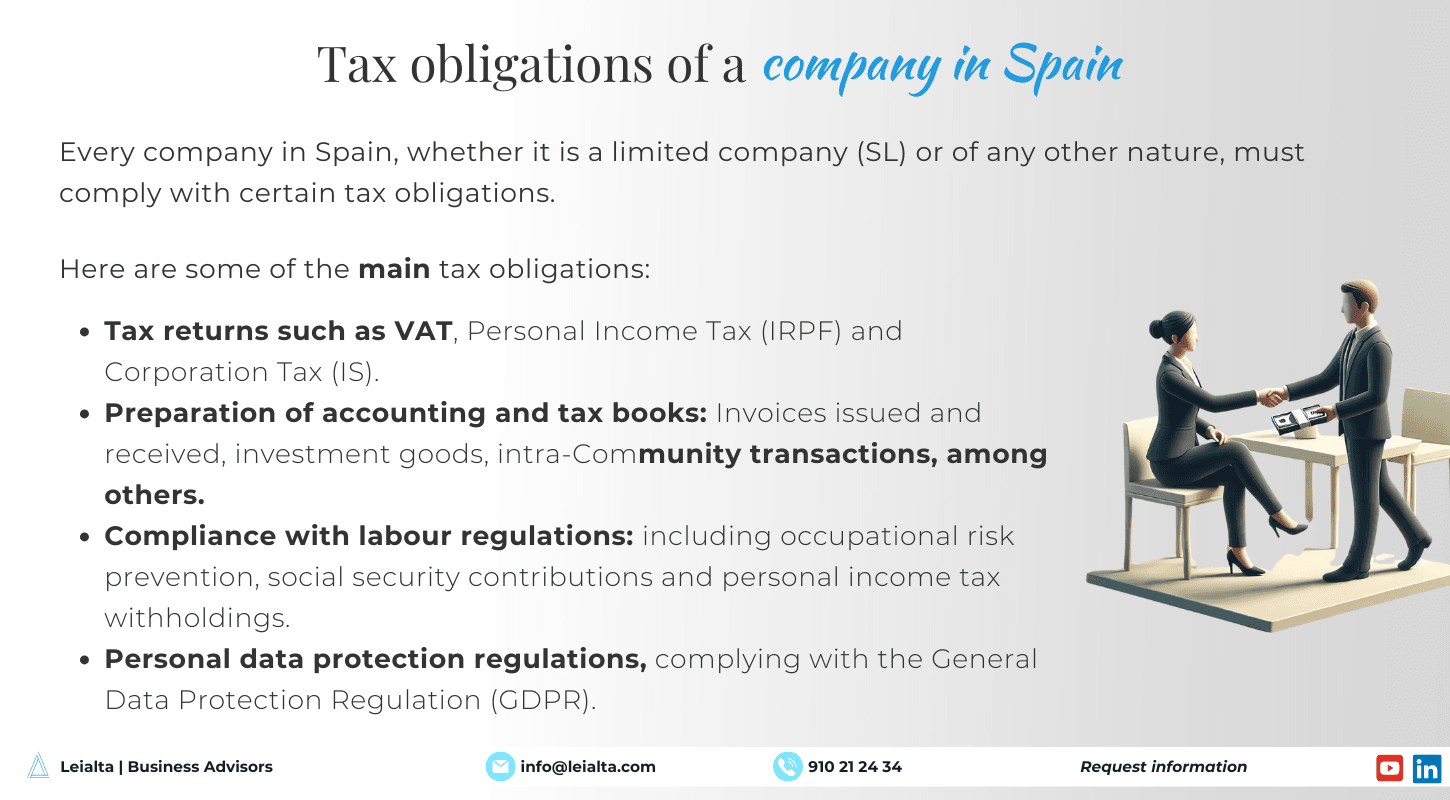![]()
Today we will explain how to set up a business in Spain without creating a subsidiary or branch company. As you already know, Spain is a country full of business opportunities that many foreign entrepreneurs are beginning to discover. After a hard period of global economic crisis, the country seems to be recovering and certain areas such as tourism, services or commerce are creating new chances for the intelligent investor. It is the ideal moment to take advantage of the situation in order to set up strong and competitive companies in our country. Nevertheless, many foreign businessmen keep finding high barriers (mainly in the legislation field) that eventually discourage them from their initial purpose. In order to properly solve them, you will find all the keys we know well as experts in business consulting in the following article.
How to set up a business in Spain with a non-resident CIF
Setting up a business in Spain has many advantages and is not as complicated as many investors think. In most cases, those who are interested usually believed that they must have a subsidiary or branch company in our country if they want to develop their project. The red tape and huge economic cost involved discourage many of them… But we have good news: it is that this is not necessary at all. It is possible to set up a business in Spain through a very interesting tax figure. We are talking about the non-resident CIF, a widely unknown alternative that enables foreign entrepreneurs to operate in Spain without an official head office.
What is required to obtain the non-resident CIF? There are two basic and essentials steps: you must perform all the tax and administrative procedures and fulfill the minimum requirements imposed by the Spanish Tax Agency. When you finish these steps and obtain your CIF, you will be able to start operating from the very first day. No more red tape or expenses. We reassure you: this is the simplest and most functional way to set up a business in Spain.
Procedures and requirements to obtain the non-resident CIF
Now you already know how to set up a business in Spain in a quick and efficient way, so let’s see which requirements must fulfill those foreign entrepreneurs full who want to start a business project in our country, in order to get their non-resident CIF:
- Deliver the statutes of the Non-Resident Company
- Deliver a power of attorney through which the business’s managers empower a resident so he can operate in Spain
- Deliver a certification of registration in the commercial register of the foreign company. This document reveals who the business’s managers are
- Deliver the NIE (identification number for foreign persons) of the legal representative of the company in Spain, so the Tax Agency knows who he or she is
- All this documentation must be translated into Spanish with sworn translation and in accordance with the requirements of the Hague Convention
- Once this documentation is delivered, tax models 030 and 036 must be filled in. Then, you will just have to wait until you are given the non-resident CIF in order to start operating
Before going on, there is something very important you must take into consideration if you want to set up a business in Spain. Even if you have a non-resident CIF, you will not pay taxes in Spain but in your own country. Have it in mind!
Hiring an external consultancy service: your best choice
Though the procedures to set up a business in Spain are now quite clear, it is not the same to read them than to put them into practice. There is paperwork to be done, reports to be delivered, studies to be prepared… This is why one of the best decisions you can make if you want to set up a business in Spain in the most efficient way is hiring an external consultancy service that will perform all these tasks for you. In LEIALTA we have an expert professional team, bilingual in Spanish and English (you will be able to communicate fluidly with us by mail, phone, or in-person), that will manage the whole process from the beginning to the end. We will also develop an exhaustive study of your business’s operations in Spain in order to know its future taxation for the purpose of VAT and Corporate Tax. We can be your representative in Spain (be aware that this role must be played by someone with more than 183 days of tax residence in Spain) or find and propose an efficient one. Contact our business of consulting in Madrid and we will solve all your questions.
Minutes ago, you did not know how to set up a business in Spain and were probably overwhelmed by the requirements and commercial obligations involved in creating a subsidiary or branch company in our country. Now we are sure that you see things differently. Leave a comment or a question on this subject!




Hello, I´m considering opening a business in Spain with offices. What procedures do I have to follow? Best regards
Hello Andy,
If you want to set up a company in Spain that has owned or rented offices, before starting the activity, you have to apply for an Opening Licence. You also need to know the classification of the activity of your business, as this will determine the requirements.
Generally, economic activities are classified as innocuous (not harmful) and organized (as having an environmental impact or can be detrimental to health).
Suppose your activity is included in the innocuous ones. In that case, the requirements are more straightforward, and the City Council fees are lower. In contrast, classified activities require, in addition to the exact requirements as the former, a prior notification before the installation of the classified action and a preliminary report before the start of the activity.
You do not have to apply for this license if you want to set up your company without premises. Still, you will apply directly to the Tax Agency and Social Security for your initial registration, indicating the activity you will carry out.
Best regards.
Hello, for the share capital to be contributed when setting up a company, how is the share capital deposited? Best Regards
Hello Henry,
Although it is not compulsory to deposit the share capital on signing, once you have the certificate of company name, you must open a bank account in the name of the company you will create, depositing the minimum initial capital. Once you have opened the account and made the corresponding deposit, the bank will issue you a certificate that you must bring to the Entrepreneur Service Point that will provide you with the service.
Best Regards.
I didn’t know that Spain is a very bureaucratic country. He clarified the steps to follow.
Very useful when not knowing the regulations, thank you.
We hope this will help you Stephanie!
An educational publication. Valuable information!
We appreciate your comment Mar, thank you!